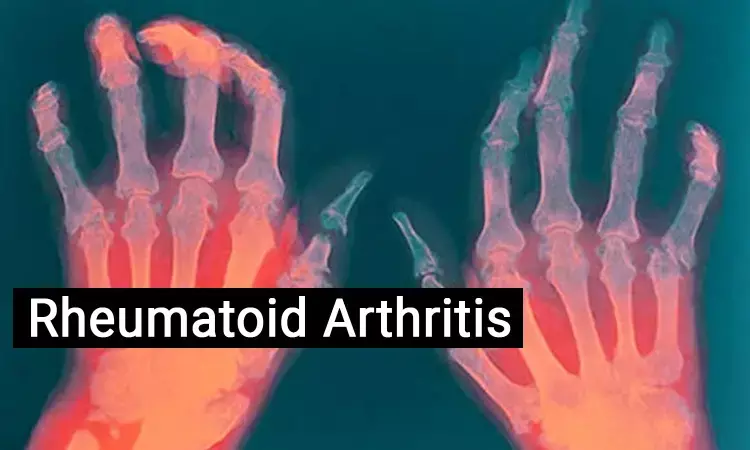- Home
- Medical news & Guidelines
- Anesthesiology
- Cardiology and CTVS
- Critical Care
- Dentistry
- Dermatology
- Diabetes and Endocrinology
- ENT
- Gastroenterology
- Medicine
- Nephrology
- Neurology
- Obstretics-Gynaecology
- Oncology
- Ophthalmology
- Orthopaedics
- Pediatrics-Neonatology
- Psychiatry
- Pulmonology
- Radiology
- Surgery
- Urology
- Laboratory Medicine
- Diet
- Nursing
- Paramedical
- Physiotherapy
- Health news
- Fact Check
- Bone Health Fact Check
- Brain Health Fact Check
- Cancer Related Fact Check
- Child Care Fact Check
- Dental and oral health fact check
- Diabetes and metabolic health fact check
- Diet and Nutrition Fact Check
- Eye and ENT Care Fact Check
- Fitness fact check
- Gut health fact check
- Heart health fact check
- Kidney health fact check
- Medical education fact check
- Men's health fact check
- Respiratory fact check
- Skin and hair care fact check
- Vaccine and Immunization fact check
- Women's health fact check
- AYUSH
- State News
- Andaman and Nicobar Islands
- Andhra Pradesh
- Arunachal Pradesh
- Assam
- Bihar
- Chandigarh
- Chattisgarh
- Dadra and Nagar Haveli
- Daman and Diu
- Delhi
- Goa
- Gujarat
- Haryana
- Himachal Pradesh
- Jammu & Kashmir
- Jharkhand
- Karnataka
- Kerala
- Ladakh
- Lakshadweep
- Madhya Pradesh
- Maharashtra
- Manipur
- Meghalaya
- Mizoram
- Nagaland
- Odisha
- Puducherry
- Punjab
- Rajasthan
- Sikkim
- Tamil Nadu
- Telangana
- Tripura
- Uttar Pradesh
- Uttrakhand
- West Bengal
- Medical Education
- Industry
Rheumatoid arthritis patients at increased risk of Thromboembolism: Study

Canada: Rheumatoid arthritis (RA) patients are at increased risk of deep vein thrombosis (DVT), pulmonary embolism (PE), and venous thromboembolism (VTE), finds a recent study in the journal Rheumatology.
J Antonio Aviña-Zubieta, University of British Columbia, Vancouver, Canada, and colleagues aimed to estimate the overall risk of PE, VTE, and DVT in patients with newly diagnosed RA compared with the general population without RA. Also, they estimated the risk trends of VTE, PE and DVT after RA diagnosis up to 5 years compared with the general population.
For the purpose, the researchers conducted a matched cohort study using the population-based administrative health database from the province of British Columbia, Canada. They calculated incidence rates (IRs) and fully adjusted hazard ratios (HRs) for the risk of VTE, DVT and PE after RA index date.
Key findings of the study include:
- Among 39 142 incident RA patients (66% female, mean age 60), 1432, 543 and 1068 developed VTE, PE and DVT, respectively.
- IRs for the RA cohort were 3.79, 1.43 and 2.82 per 1000 person-years vs 2.70, 1.03 and 1.94 per 1000 person-years for the non-RA cohort.
- After adjusting for VTE risk factors, the HRs were 1.28, 1.25 and 1.30 for VTE, PE and DVT, respectively.
- The fully adjusted HRs for VTE during the first five years after RA diagnosis were 1.60, 1.47, 1.40, 1.30 and 1.28, respectively.
- A similar trend was shown in PE.
"This population-based study demonstrates that RA patients have an increased risk of VTE, PE and DVT after diagnosis compared with the general population," wrote the authors.
Further, the risk was found to be independent of traditional VTE risk factors and is highest during the first year after RA diagnosis, then progressively declined.
The study titled, "The risk and trend of pulmonary embolism and deep vein thrombosis in rheumatoid arthritis: a general population-based study," is published in the journal Rheumatology.
DOI: https://academic.oup.com/rheumatology/article-abstract/60/1/188/5866682
Dr Kamal Kant Kohli-MBBS, DTCD- a chest specialist with more than 30 years of practice and a flair for writing clinical articles, Dr Kamal Kant Kohli joined Medical Dialogues as a Chief Editor of Medical News. Besides writing articles, as an editor, he proofreads and verifies all the medical content published on Medical Dialogues including those coming from journals, studies,medical conferences,guidelines etc. Email: drkohli@medicaldialogues.in. Contact no. 011-43720751


